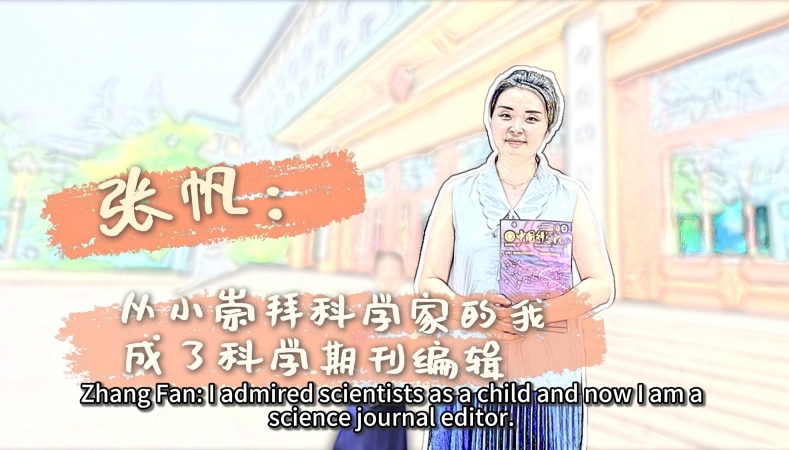Exploring Common Norms of Digital Society Between China And Japan

By Staff Reporters
The year 2022 marks the 50th anniversary of the normalization of China-Japan diplomatic relations. As part of the memorable date, the 18th Annual Beijing-Tokyo Forum was held online simultaneously from December 7 to 8 in Beijing and Tokyo.
As part of the event, a sub-forum co-sponsored by Science and Technology Daily, the Digital Economy Forum focused on exploring digital social norms between China and Japan going forward. Delegates from the two countries shared their views on the issue.
Exploring a new space for human civilization
With the advent of the global digital era, digital economy has not only become an important engine driving world economic development, but also a pivotal strategic basis for a scientific and technological revolution in various countries.
Wang Junming, Chinese host of the forum and assistant editor-in-chief of Science and Technology Daily, said that promoting economic growth and realizing digital transformation of cities and societies are common tasks faced by both China and Japan. Digital transformation is also the development direction of achieving a higher level of mutually beneficial cooperation between the two countries in the new era.
"The future of the digital world is to build an open, fair and non-discriminatory society. This is not only the vision of China and Japan in the digital era, but also the common demand of Asian society." said Liu Song, Vice president of PingCAP (Beijing) Technology Co. Ltd.
Tatsuo Yamasaki, Japanese host of the forum and distinguished professor at University of Health and Welfare, said that Japan and China are both Asian countries, and they do not need to pursue the U.S. or European model when it comes to digital economy governance, adding that the two countries can explore a new model featuring mutual trust, benefit and win-win results.
Jointly building an "Asian Community of Digital Civilizations"
In today's world, changes unseen in a century are accelerating, however, the development of digital economy brings opportunity to Sino-Japanese cooperation.
Yu Yang, General Manager of China Translation Corporation and Chairman of Global Tone Communication Technology Co. Ltd., said that China and Japan should not only discuss norms, standards and the future, but also focus on the present in a pragmatic manner. China would like to work with Japanese companies in digital fields such as fin-tech, global industrial chain and technological innovation within a mutually trusted technology framework.
Meanwhile Song Kai, Vice President of Huawei Public and Government Affairs' Department of Corporate Communications, said, "In the future, Chinese and Japanese companies can deepen cooperation in general computing, artificial intelligence computing and other computing technologies, and enjoy the convenience brought by green and intelligent computing and the upgrading of traditional industries."
It is obvious that digital demographic dividends and digital society have value, according to Liu Song. It is predicted that by 2030, 60 percent of the world's digital population will live in Asia, which is the largest group in the global digital economy and society. Asian societies need to be built on inclusive digital technologies and society rules system, said Liu.
Seeking a better future for digital industries
The participants also discussed the specific areas and possible directions of cooperation and put forward practical suggestions.
Zhong Hong, Director of the Department of Digital Rights Economy in Research Center of Technological Innovation, Tsinghua University, proposed the path of cooperation from three dimensions of "individual well-being, regional security and global competitiveness."
Focusing on the joint cultivation of innovative talent in the field of digital technology, Liu Song proposed that China and Japan should make use of the open source and cooperation ecology to bring together the innovative force represented by Asian engineers from China, Japan, South Korea and India, and form a pan-Asian talent training and mobility group to lead the continuous innovation of innovative technologies.
Song Kai believed that digital talent is a key element of digital economy, and the development of digital economy needs to continuously cultivate innovative talent.
Fumihiko Kamiao, Nomura Research Institute's Director of Research and Director of Future Innovation and Development Center, said that it is possible to build a bridge and dialogue platform between people from three aspects: creating a trusted environment for enterprises, building a data circulation mechanism and using industrial policies to trial first.
Establishing common norms under bilateral and multilateral frameworks
AI is a key technology leading industry and enabling engine in the era of digital economy.
Toshio Iwamoto, Principal Executive Advisor of NTT Data Corporation, said the challenges facing digital society now include ethical, legal and social issues.
Internet companies around the world have their own internal AI ethical guidelines, which provide an important model for the formulation of global rules.
Jeff Shi, President of SenseTime Asia Pacific Business and Vice President of Group Strategic Planning, gave active and vivid practice cases of Chinese AI enterprises.
He explained that SenseTime officially put forward the AI ethics of "balanced development" in 2021, established the ethical principles of "people-oriented, controllable technology and sustainable development," and further proposed the development of "responsible and valuable" AI this year.
On the formulation of digital social norms, Zhong Hong proposed that China and Japan, on the one hand, could take the EU's model of personal data protection as reference and form a bilateral top-level framework on the basis of fully respecting each participant's own laws and regulations. On the other hand, the two countries could explore rule-making in vertical fields of common concern, such as AI for elderly care, carbon emission reduction driven by green energy, and medical and health care, carrying out targeted discussions and consultations.


